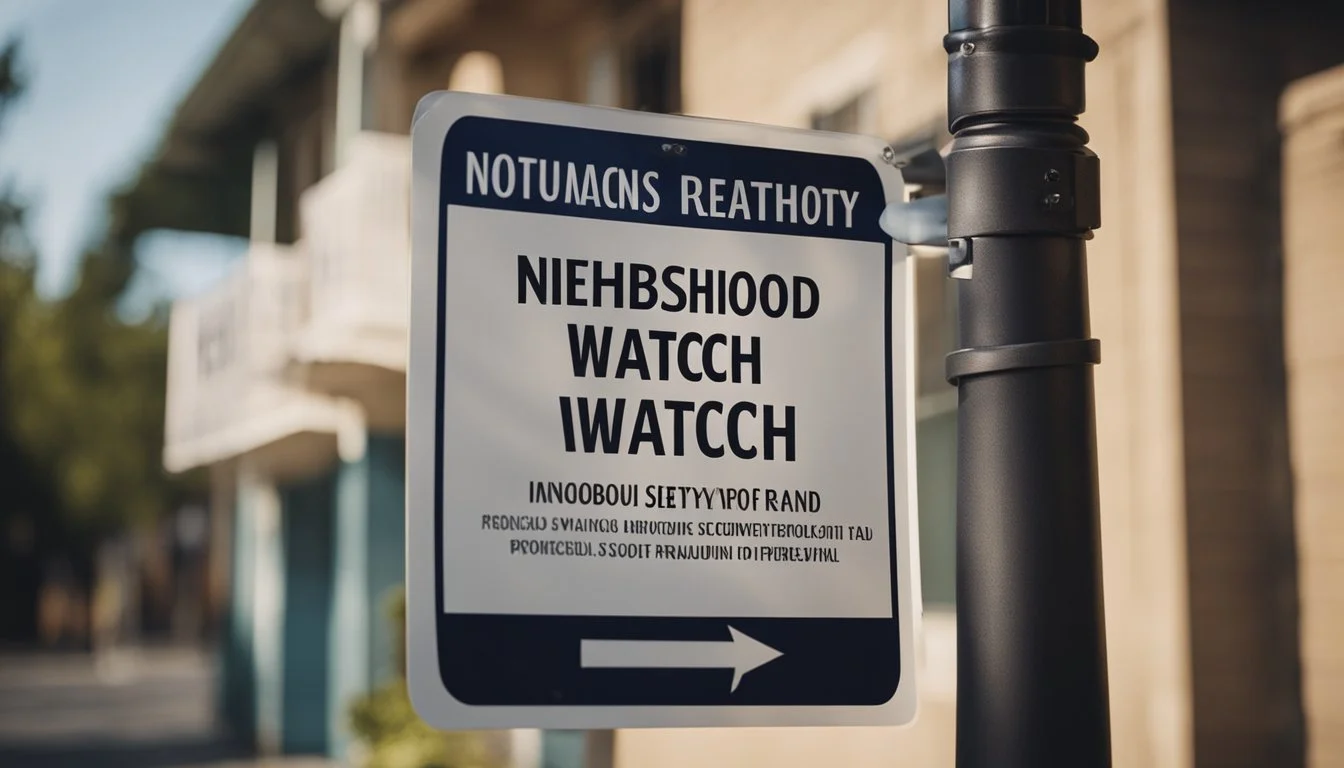5 True Crime Documentaries About Social Security Fraud in Low-Income Communities
Uncovering Hidden Scams
True crime documentaries have captivated audiences by shedding light on real-world fraud and deception. Among these, stories focusing on Social Security fraud in low-income communities offer a compelling look into the vulnerabilities of the most financially at-risk populations. These documentaries not only expose the intricacies of the fraudulent schemes but also highlight the profound impacts on those affected.
Understanding the magnitude of Social Security fraud in these communities helps reveal systemic flaws and the human consequences of such crimes. By examining specific cases through the lens of true crime, viewers gain insight into how these schemes are orchestrated and the efforts required to uncover and prosecute the perpetrators. These narratives serve as both a warning and an educational tool about the importance of safeguarding social welfare programs.
1) The Social Swindle: Inside the Minds of Scammers
"The Social Swindle: Inside the Minds of Scammers" explores the intricate psychological tactics employed by those who commit Social Security fraud in low-income communities.
Scammers often exploit the trust and vulnerabilities of their victims. They use persuasive language and fabricated documents to gain access to Social Security numbers. This manipulation is targeted intentionally toward individuals who may lack resources to verify the authenticity of such claims.
These fraudsters frequently operate within tight-knit communities, making them appear trustworthy. They might pose as government officials or social service workers to deceive their targets effectively. The scammers’ detailed knowledge of the local environment adds to their perceived legitimacy, making it easier to execute their fraudulent schemes.
The documentary delves into the adverse effects on victims, including financial ruin and emotional distress. Victims of Social Security fraud often find themselves struggling to reclaim their identity and financial stability after these deceitful acts.
Understanding the methods and psychological motivations behind these scams is essential in preventing future occurrences and protecting vulnerable populations from such exploitation.
More about "The Social Swindle" (2024).
2) Fraud in the Neighborhood: Social Security Gone Wrong
Social security fraud in low-income communities often involves exploiting the vulnerability of residents. In these neighborhoods, scammers may manipulate social security systems to unlawfully gain benefits meant for those in genuine need.
One notorious case is the story of Eric C. Conn, a Kentucky attorney. He orchestrated a massive social security fraud scheme, defrauding the government out of millions. His story is detailed in the documentary series "The Big Conn" (2022) link.
Another significant documentary is "The Tinder Swindler" (2022). Though primarily focused on romance scams, it sheds light on the broader impact of fraud, including financial deceit in social programs. Simon Leviev exploited women to fund his lavish lifestyle, reflecting how personal manipulation can intersect with systemic fraud link.
"Art and Craft" (2014) profiles Mark Landis, a forger who donated fake artworks to museums. While not directly about social security, it demonstrates how deception can afflict various sectors. This type of fraud contributes to a culture where trust in official systems erodes link.
These documentaries highlight the pervasive nature of fraud and its devastating effects on communities relying on social security systems. By exploring these stories, viewers gain insight into how such schemes unfold and the lasting impact they have on vulnerable populations.
3) Low-Income Lies: The Dark Side of Social Security
Social Security fraud can have a devastating impact on low-income communities. These fraudulent schemes often target vulnerable individuals, exacerbating their financial struggles. This section explores true crime documentaries that uncover the dark side of Social Security fraud in low-income areas.
1. The Public Pension Conundrum (2018)
This documentary sheds light on fraudulent claims within public pension systems. It highlights how unscrupulous individuals exploit loopholes, causing financial losses and jeopardizing the livelihoods of low-income retirees. More about The Public Pension Conundrum
2. Fraud Beneath the Surface (2020)
Fraud Beneath the Surface exposes the intricate scams that prey on Social Security recipients, emphasizing how these schemes disproportionately affect the economically disadvantaged. More about Fraud Beneath the Surface
3. Broken Promises: The SSI Scandal (2021)
This film investigates systemic issues within the Supplemental Security Income (SSI) program. It showcases how fraudulent claims drain resources meant for those in genuine need, leaving low-income communities to suffer the heaviest blows. More about Broken Promises: The SSI Scandal
4. Silent Suffering: Social Security Scams (2017)
Silent Suffering delves into the personal stories of Social Security fraud victims in low-income communities. The documentary reveals the emotional and financial toll these scams take on the most vulnerable populations. More about Silent Suffering: Social Security Scams
5. Stolen Futures (2019)
This documentary follows investigators as they uncover large-scale fraud operations that siphon money from the Social Security system, leaving low-income beneficiaries in dire straits. More about Stolen Futures
4) False Security: Stories of Deception and Fraud
"False Security: Stories of Deception and Fraud" highlights gripping true crime stories focusing on fraud within the Social Security system. Fraud in these cases often targets low-income communities, exploiting vulnerable individuals who depend heavily on governmental assistance.
The Big Conn (2022)
Eric C. Conn, a Kentucky attorney, orchestrated the largest Social Security fraud in U.S. history, stealing over $550 million. This four-part Apple TV+ documentary covers his audacious schemes and the extensive fallout from his actions. IMDB
Lords of Scam (2021)
"Lords of Scam" dives into global fraud schemes, including Social Security scam artists. The series offers an in-depth exploration of notorious con artists and their elaborate frauds, exposing the intricate details of their deceptions. IMDB
Art and Craft (2014)
While not exclusively about Social Security fraud, "Art and Craft" touches on themes of deception and exploitation. Mark Landis, the film’s central figure, manipulated institutions to donate counterfeit artworks while scamming unsuspecting donors and organizations. IMDB
Focusing on these documentaries sheds light on how individuals exploit social safety nets and the harsh consequences for those defrauded.
5) Betrayed by Trust: Social Security Fraud in America
This documentary sheds light on the extensive fraud that has plagued the Social Security system, particularly targeting low-income communities.
Viewers are taken through real cases that illustrate how individuals in positions of trust exploited the system for personal gain. The film masterfully portrays the consequences faced by victims who depended on these benefits for their livelihood.
Through interviews with law enforcement, victims, and the perpetrators themselves, the documentary provides a multi-faceted view of the fraudulent activities. The personal stories highlight the emotional and financial fallout for affected families.
"Betrayed by Trust: Social Security Fraud in America" effectively underscores the need for reforms and tighter security measures within government assistance programs. The narrative is both engaging and enlightening, making it a must-watch for those interested in social justice and public policy.
Betrayed by Trust: Social Security Fraud in America (2023) on IMDb
Understanding Social Security Fraud
Social Security fraud involves various deceptive practices aimed at unlawfully receiving social security benefits. The tactics range from inflammatory actions to intricate schemes, and the consequences are particularly severe for low-income communities.
What Is Social Security Fraud?
Social Security fraud refers to any act of deception performed to gain benefits one is not legally entitled to. These benefits might include retirement, disability, and supplementary income payments. Fraud can be perpetrated by individuals, attorneys, or even groups conspiring together.
Common indicators of fraud include falsifying disability claims, using deceased persons' information, and not reporting income or changes in disability status. Though the tactics might vary, the objective is to exploit the system for financial gain, often involving large sums of money.
Common Tactics Used in Fraud
Several methods are commonly employed in Social Security fraud. These include:
Identity Theft: Stealing and using another person's Social Security number to claim benefits.
Misrepresentation: Providing false information about disabilities or employment status.
Falsified Documentation: Creating fake medical records to prove eligibility for disability benefits.
Eric C. Conn, a Kentucky lawyer, exemplifies large-scale Social Security fraud, having orchestrated the theft of over $550 million by manipulating medical evidence and bribing officials. Such large-scale operations can involve intricate networks of deceit and co-conspirators, layering the complexity of the fraud.
Impact on Low-Income Communities
The repercussions of Social Security fraud are particularly detrimental to low-income communities. Fraud diverts essential resources away from those in genuine need of support. The loss of funds can lead to reduced benefits for eligible recipients, exacerbating poverty levels and economic instability.
Individuals in low-income communities who are legitimately entitled to these benefits often face longer approval times and increased scrutiny due to the mistrust caused by fraudulent activities. This added burden can further strain their already limited financial resources, amplifying the challenges they face in securing basic necessities.
Addressing these issues requires stringent oversight and proactive measures to safeguard the integrity of the Social Security system, ensuring that aid reaches those who truly need it.
Challenges in Prosecuting Fraud Cases
Prosecuting Social Security fraud cases in low-income communities presents unique challenges. Key issues include navigating legal complexities, managing limited resources, and fostering trust within the community.
Legal Obstacles
Legal procedures in fraud cases are often intricate. Defendants may exploit loopholes or obscure regulations to their advantage.
Evidentiary Requirements: Prosecutors must gather extensive evidence to prove intent, which can be difficult when dealing with sophisticated schemes.
Complex Regulations: Social Security laws and regulations are complex, making it hard to pinpoint illegal activities without thorough investigation.
Defense Tactics: Defense attorneys may use various legal maneuvers to delay proceedings, challenge evidence, or argue technicalities, complicating the prosecutorial process.
Resource Limitations
Many fraud cases face the hurdle of insufficient resources. This can significantly hamper the effectiveness of prosecution.
Financial Constraints: Budget limitations can reduce the ability to hire necessary experts or conduct thorough investigations.
Manpower Shortages: Prosecuting offices may lack enough personnel, leading to overworked staff and slower case progression.
Technical Expertise: Limited resources might also restrict access to advanced forensic tools and technologies crucial for unearthing digital evidence.
Community Trust Issues
Winning the trust of low-income communities is essential for successful prosecutions yet challenging.
Historical Distrust: Previous negative experiences with government entities can make community members wary of cooperating with investigations.
Fear of Retaliation: Individuals may fear reprisal if they come forward with information, especially if they live close to those being investigated.
Outreach Efforts: Prosecutorial teams might struggle to effectively communicate and educate the community about the importance of reporting fraud due to cultural or linguistic barriers.
Preventative Measures and Community Efforts
Addressing social security fraud in low-income communities requires a combination of government initiatives, community education, and the involvement of non-profit organizations. These strategies are essential to safeguard public resources and support vulnerable populations.
Government Initiatives
The government plays a central role in preventing social security fraud. Key initiatives include stricter regulations, enhanced identification processes, and more rigorous auditing systems. Authorities often deploy advanced technology, such as AI-powered systems, to detect suspicious patterns and fraudulent activities swiftly.
Policy reforms can help close loopholes that fraudsters exploit. Government agencies also conduct periodic training for staff to better recognize and manage fraud cases, ensuring a proactive approach to security and compliance.
Community Education
Education within the community is vital for preventing fraud and empowering residents. Programs aimed at increasing awareness about social security benefits, rights, and common scams are crucial. These initiatives can include workshops, seminars, and distribution of educational materials in local languages.
Schools, libraries, and community centers often host these sessions, providing easily accessible information. Community advocates can also play a significant role by sharing personal stories and practical tips, helping residents identify and report fraudulent activities.
Role of Non-Profit Organizations
Non-profit organizations are integral in supporting low-income communities against social security fraud. They offer resources such as legal aid, financial counseling, and advocacy services. Organizations may also collaborate with government bodies to influence policy changes and provide direct support to victims.
Hotlines and online platforms managed by non-profits allow individuals to report fraud anonymously, contributing to a safer environment. These organizations often work closely with community leaders to ensure that their services address the specific needs and challenges within their communities.









